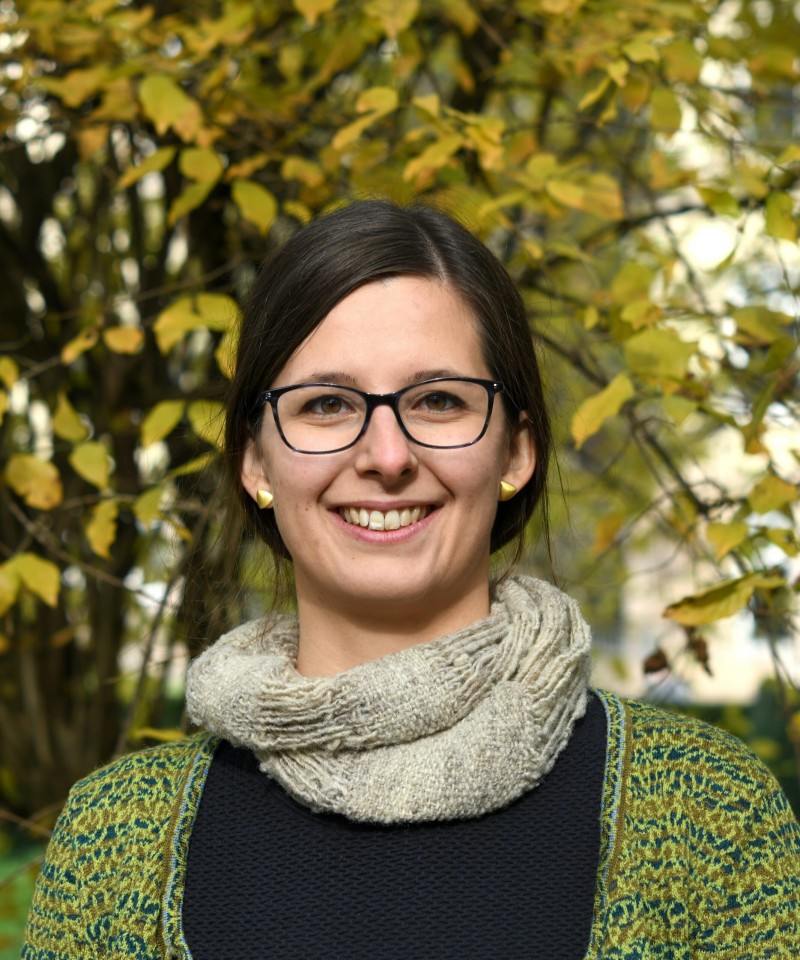Feature Article No: 03/22
10 June 2022
Brussels
By Susan Kim (*)
Lea Schlenker, from the Evangelical Church in Germany, is a member of CEC Governing Board, and she also serves as Youth Advisor. Below, she reflects on some of the challenges and opportunities young people are voicing today—and how CEC is listening.
On any given day, Lea Schlenker hears a lot of news about the war in Ukraine. For Schlenker, the war was a wake-up call. Relations of trust across national or denominational boundaries, which lay at the heart of ecumenism, regained importance in light of the war.
“CEC has conducted listening sessions with Ukrainians,” she said. “Thanks to video conference tools, we could learn from the ground what is going on.”
Schlenker saw and heard firsthand the important role churches are playing in keeping the hope for peace alive, and offering relief to suffering people. “Churches contribute to political questions and diplomatic relations,” she said. “In addition to that, I also appreciate that we have prayer as a form of responding to what we experience.”
She recalled that, shortly before CEC gathered for an online pre-assembly in February to prepare for the upcoming World Council of Churches 11th Assembly, Ukraine was attacked. “Everything was rescheduled and we all gathered to pray,” she said. “People in countries not directly affected could connect to Ukrainians, listen to them and pray with them.”
CEC is often the table around which people can draw together. “CEC plays a very crucial role in that sense,” she said.
Schlenker also finds solace through singing—a tradition close to her heart and to her Lutheran home church. “During COVID, we had so many restrictions on singing, and we couldn’t sing at all for a long time,” she said.
As COVID restrictions were lifted, and the war in Ukraine started, suddenly her church was full. “We were shocked by the war, and the only way we found to express our grief was to sing songs for peace,” she said. “You experienced one voice across the generations—it was a unifying moment.”
That sense of unity across generations is, in turn, something she brings to CEC’s board. “Let’s be honest,” she said. “I got on the board because I was female, a layperson and young.”
In fact, when she first became a CEC board member, it was hard to let go of the feeling that she was present simply because she fit a category.
“I was always a bit skeptical about quota regulations,” she said. “For me, this experience has come from being ‘the quota’ to being a fully integrated member of the board who can present things and even pave the path forward for others.”
She believes CEC is seizing the opportunity to put into place strategies that will enable young people from CEC Member Churches to participate in ecumenical and advocacy work.
“It is good to experience that I don’t need to remind other board members about youth representation,” she said. “People are willing to include youth but many times the systemic issues are very hard.”
For people between 18 and 30 years old, their lives are often full of transitions. “Church structures expect you to know that you more or less know what you’ll be doing in five years’ time,” she said. “For youth that’s not the case.”
To bridge the gaps, CEC cooperates with ecumenical youth organisations, which it highly values.
As far as role models, Schlenker follows with interest Anna-Nicole Heinrich, the current praeses of the synod of the Evangelical Church in Germany. “She’s really comfortable with getting uncomfortable,” said Schlenker. “She’s also decisive about what churches should be about and what they shouldn’t be about. That’s inspiring for me in terms of church leadership.”
As 2022 is the European Year of Youth, Schlenker tries to envision the Europe where she wants to live as a religious person. “We generally have a problem with religious illiteracy,” she said. “People oftentimes have prejudices and don’t really know what religion is about.”
She believes CEC is an actor that contributes to a better understanding of religion and churches in Europe. “CEC brings together people from many different geographic and national backgrounds,” she said. “We all make up this diverse Christian family.”
CEC convenes a constructive discourse, Schlenker added. “It’s difficult to be the voice of the churches in Europe because we are so many—but because of that, churches have a lot to offer.”
(*) Susan Kim is a freelance journalist from the United States.
